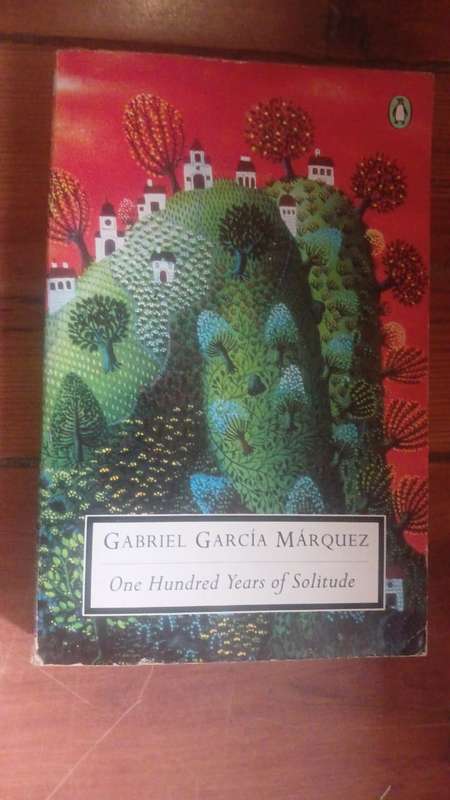One Hundred Years of Solitude will linger on in immortality as an important work of 20th century literature. It is all story, where everything conceivable and inconceivable is happening at once. And indeed it does feel as if the whole of life is bursting forth from the book, which is a family epic that spans from the 1820s through the 1920s. Marquez combines his mythmaking with historical events, using magical realism as a political action of uncovering the meaning hiding in plain sight of historical reality. Marquezs storytelling serves as an act of knowledge, as a negation of the false documents of the civil state which, until very recently papered over our reality. While Marquez says there's not a single line in my novels which is not based on reality, it seems to affirm Fuentes analysis and point to the reality in storytelling being a method to unlock a reality in life previously unobservable.
Gabriel Garcia Marquez was a Colombian writer and considered one of the most significant authors of the 20th century, particularly in the Spanish language, he was awarded the 1972 Neustadt International Prize for Literature and the 1982 Nobel Prize in Literature for One Hundred Years of Solitude. He pursued a self-directed education that resulted in leaving law school for a career in journalism. From early on he showed no inhibitions in his criticism of Colombian and foreign politics. In 1958, he married Mercedes Barcha Pardo;[2] they had two sons, Rodrigo and Gonzalo. It is a lesser known fact that Gabriel had a daughter with Mexican writer Susana Cato, part of an extramarital affair. They named her Indira, and she took her mother's last name.
García Márquez started as a journalist and wrote many acclaimed non-fiction works and short stories. He is best known for his novels, such as One Hundred Years of Solitude (1967) which sold over fifty million copies, Chronicle of a Death Foretold (1981), and Love in the Time of Cholera (1985). His works have achieved significant critical acclaim and widespread commercial success, most notably for popularizing a literary style known as magic realism, which uses magical elements and events in otherwise ordinary and realistic situations. Some of his works are set in the fictional village of Macondo (mainly inspired by his birthplace, Aracataca), and most of them explore the theme of solitude. He is the most-translated Spanish-language author. "He was awarded the Nobel Prize for Literature in 1982, mostly for his masterpiece Cien años de soledad (1967; One Hundred Years of Solitude). He was the fourth Latin American to be so honored, having been preceded by Chilean poets Gabriela Mistral in 1945 and Pablo Neruda in 1971 and by Guatemalan novelist Miguel Ángel Asturias in 1967. With Jorge Luis Borges, García Márquez is the best-known Latin American writer in history."
Upon García Márquez's death in April 2014, Juan Manuel Santos, the president of Colombia, called him "the greatest Colombian who ever lived."

